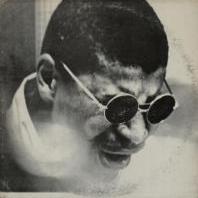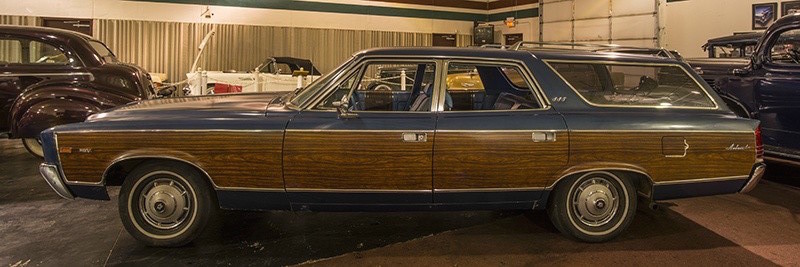-
Posts
5,203 -
Joined
-
Last visited
Content Type
Profiles
Forums
Events
Blogs
Everything posted by Late
-

Homemade covers for LP's that MIGHT've been on BN
Late replied to Rooster_Ties's topic in Miscellaneous Music
Nice! (And thexy!) The Soothsayer ... ? -
Wasn't the previous VICJ series (in cardboard sleeves) numbered from 6000? Seems a little odd that the new series would go from 4000. Still, my guess is with Hans — I'd think that this newly-priced series use the same remasters, but are simply in jewel cases instead. I wonder if it actually costs more to put out discs in cardboard sleeves? I wouldn't think so, but ...
-
I'm teaching the play right now in my Intro to Drama course. Apparently, one of Miller's regrets about this play was that he didn't develop the character Linda as much as he would have liked to. As a result, this leaves her (perhaps intentionally) ambiguous statements at the drama's close open to more speculation than Miller may have wanted. Still, a great play to read and teach. This is the first I've heard of Miller's passing.
-
If it'd be anything like his work on the Love Supreme set, that would be my hope too. Some of Rudy's best-ever remastering work, in my opinion.
-
Yes. It got bumped back for reasons that I can't now remember. Estate-related difficulties? I thought it might be more than 2 discs, but I certainly won't complain. I do hope Verve doesn't get too fancy with its packaging ... .
-
I didn't know Irène played the tuba ...
-
Verve currently has this one slated for release on September 20, 2005. How many discs will it be? Anyone here in-the-know? I hope the projected date of reissue pulls through this time. Really looking forward to hearing the music.
-
Up from the depths of 2003, as Hiroshi finally landed a copy (AMCY 1171) of The Shape of Jazz to Come for me. I spun it three times today. Absolutely gorgeous. It's weird how much a good remaster can make a difference sometimes. (And the little puppy was an affordable 1600¥!) Particularly amazing — Charlie Haden's bass comes through with equal presence to Ornette's alto! Not even on my old vinyl (which is not an original pressing) did the bass sound this good. It's almost as if I'm hearing the music for the first time. Very exciting — little nuances of Cherry's horn lines, for example, come through with more clarity ... his breath, "ghosted" notes, and how he plays under Ornette for the melodies. Whew.
-
... hey, I thought "Clifford Thornton" was just your handle. What did you have the other day? :rsly:
-
Nice list M. Graham! (A Long Drink of the Blues is actually a Jackie McLean record — though Webster Young is on the title track. It's a very good album! Hopefully it has a good chance of staying in-print.)
-
"A double skinny latté, blueberry scone, and the Clifford Thornton please ..."
-
(Superman uses his ThighMaster just a little bit more than Mr. Shazam.)
-
I think that's right. I remember seeing the original U.S. compact disc release in 1988, but I didn't know enough about Turrentine at the time to buy it. Now I have the JRVG, and it sounds pretty good to me! BTW — I e-mailed Cuscuna about the Edwards PJ title in question. If he gets back to me, I'll post the response here.
-
I've wondered about that myself. I always have to repeat to myself: "New Bottle, Old Wine" in order to remember just what the title is (was). Here's perhaps an even more focused scan (courtesy of the site Bary linked): I haven't heard this album, but would really like to! (The other PJ title is a favorite.)
-
There's hope for rational pricing after all!
-
To be honest, I haven't heard all that many Flanagan-led sessions. An excellent starting place (at least) I think would be Overseas, but I'm guessing you've already heard this one. I think I hear what you're saying about Flanagan The Sideman. He's a brilliant accompanist. Some of his work for Coleman Hawkins ... well, without Flanagan aboard, those albums wouldn't be half as beautiful. I think it's actually an equal note of merit to be recognized as an excellent accompanist as compared to an excellent leader.
-
Teddy Edwards with Les McCann Ltd. - It's About Time Teddy Edwards: tenor saxophone Les McCann: piano Leroy Vinnegar: bass Ron Jefferson: drums cover design: Hardy Henderson cover photos: Ivan Nagy Who here would like to see this Pacific Jazz session as a Connoisseur release?
-
It seems strange that this album has apparently never been reissued on compact disc ... I wonder what Cuscuna thinks of it?
-
That would be something. Hard to imagine the Japanese market wanting the type of titles you describe — though I'm all for them — at least judging from past reissue programs ... but one never knows, do one? I think it'd be great.
-
Sunset Eyes has been out on disc (though it's now out-of-print), but has this one ever seen compact disc reissue? In any country? I wonder if there's enough material for a Teddy Edwards Mosaic Select. What would/could be on it?
-
Without having checked any discographies, isn't France on a Blue Note album with Freddie Roach? I have to admit, I haven't heard France ... and should change that!
-
Mark — great site, and a professional layout. (Not to mention the photographs!) Nice links, too. They led me to explore resident Organissimo Jeff Blake's site and Matt Moor's site.
-
Listening to the OJC of The Cats right now, and started thinking about Flanagan. In some ways, he reminds me of Roy Haynes: impeccable taste, a refined touch, and not always a prominent profile when it comes to discussing improvised music. He is certainly a master, however. Sometimes I hear Flanagan's playing as a contemporaneous extension of Hank Jones's ideas. What do you think? Any special affection? Any particular albums that are favorites? (I imagine there could be a lot to list.) I'm also interested in reading what you all think about his contributions on Giant Steps.
_forumlogo.png.a607ef20a6e0c299ab2aa6443aa1f32e.png)
